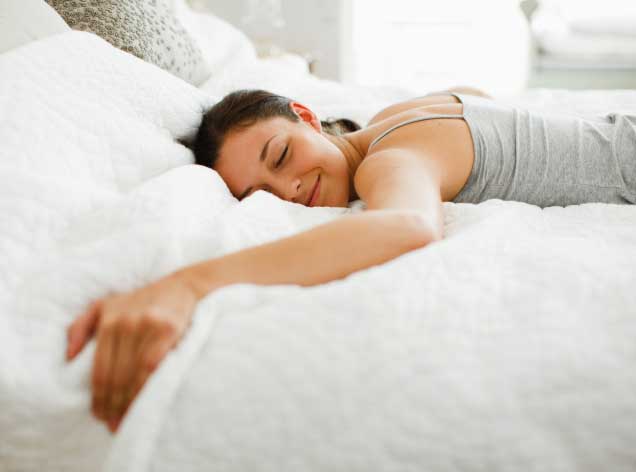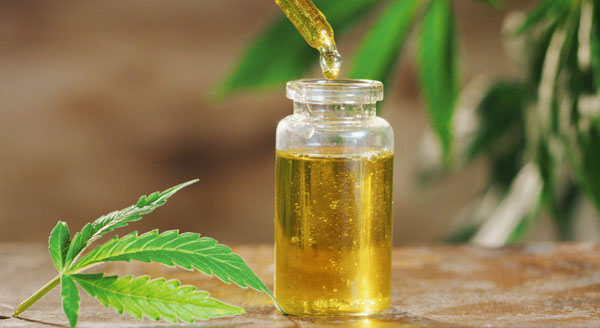Have a question? 06 70 73 89 02
🔞 Not for sale to under 18s
✨ 15% off EVERYTHING on the site with the code SALE 🥳 ( except accessories and gummies)
Have a question? 06 70 73 89 02

Difficulty getting a good night's sleep, too many thoughts at the time of falling asleep, insomnia, sleepwalking... Sleep disorders are frequent and numerous. According to a study by the Institut National du Sommeil et de la Vigilance conducted in 2021[1], the French sleep an average of 6 hours 41 minutes during the week and 7 hours 33 minutes at weekends.
These figures represent a drop of more than half an hour since 2015, in which already a quarter of French people complained of sleep deprivation, particularly on working days, and a third said they suffered from sleep disorders.
One French person in two suffers from sleep disorders, and this has worsened with the pandemic, successive confinements and periods of curfew.[2] This is one of the most serious problems in France.
As a result, 16% of adults suffer from chronic insomnia, and 45% of 25-35 year-olds consider that they don't sleep enough or less than they should. Cumulatively, it is estimated thatone in three people suffer from sleep-related problems[3].
These sleep disorders need to be taken very seriously: rest plays a vital role in all phases of our lives - social, professional and relational. Sleep deprivation can lead to numerous pathologies such as Parkinson's disease, asthma, tachycardia, chronic bronchitis or hyperthyroidism, as well as an increased cardiovascular risk in insomniacs (study published in the AmericanHeart Association journal Circulation). What's more, sleeping less will lead to changes in social relationships and interactions with others.
Several methods exist to relieve these disorders: relaxation, meditation, yoga, medication... but it's not always easy or desirable to take chemical compounds to relieve these disorders. There are, however, other, much gentler, non-addictive methods.
Cannabinoids are regularly promoted for their alleged benefits on sleep and anxiety in general. They play a regulatory role on the receptors of the cannabinoid system, acting on the nervous system.
According to scientific studies, they are gradually beginning to be recognized for their relaxing, analgesic and anti-inflammatory benefits. According to current scientific research, CBN, a cannabinoid component in the same way as CBD, inhibits the uptake of GABA, gamma-aminobutyric acid, naturally produced by the body. GABA is the main inhibitory neurotransmitter of the central nervous system, and its main role is to regulate cerebral activity, disconnecting the brain when needed.
In short, GABA helps to control negative thoughts and their replay, particularly when falling asleep. It therefore has a calming effect on the brain, resulting in muscle relaxation and reduced anxiety. The same effect is achieved with CBD, a natural relaxant derived from the cannabis sativa plant, one of the hundred or so cannabinoids found in hemp. This wellness effect of CBD acts directly on the endocannabinoid system, which controls the functioning of a large number of biological functions such as sleep, mood and pain.
Although clinical studies are not yet sufficiently developed, cannabidiol's role in reducing stress and anxiety and helping to stop sleep disorders is undeniable. The advantage of CBD is that it has no addictive effects or side-effects. Indeed, with THC levels below 0.3%, there are no psychoactive effects. On the contrary, CBD helps regulate the sleep cycle and rhythm.
Various products are said to reduce anxiety and stress by helping to relax thoughts and muscle aches. Among them, CBD offers an alternative to chemical compounds and creates no dependency or risk of overdose.
CBD helps you sleep faster: it reduces stress and relaxes muscles. Calming the nervous system, it promotes the production of melatonin, the sleep hormone that regulates biological rhythms.
It also helps you sleep longer: muscle relaxation and stress regulation ensure a much more restorative sleep than one without REM phases. Drowsiness is thus avoided, as are sudden awakenings and insomnia.
Since CBD is non-addictive, the choice of product will depend on the consumer's own tastes. Whether in oil, vapor, resin or flowers, the choice is wide and the effectiveness of CBD will be present.
CBD oil is said to be the most effective form for achieving an almost immediate relaxing effect and promoting sleep. The oil contains active ingredients essential to the body's proper functioning. Consumers place a few drops under the tongue, wait a minute and then swallow the oil, with or without water.

In flowers, CBD can be consumed as an infusion, ideal after dinner and before bedtime. Less active but providing a more important wellness ritual, infusions can be added to a daily routine. We have chosen two promising varieties:
Vaporization is also said to be a significant aid to falling asleep: a few inhalations before going to bed will help you to fall into Morpheus' arms immediately and enjoy a restful sleep. CBD Jelly hash resin is a perfect example of a natural relaxant.
At bedtime, avoid vaping e-liquids.
In conclusion, CBD may help you sleep better, but it's no substitute for a healthy lifestyle, with a healthy diet, regular physical activity and a ban on screens before bedtime. Feel free to browse our blog to learn more about the benefits of CBD!